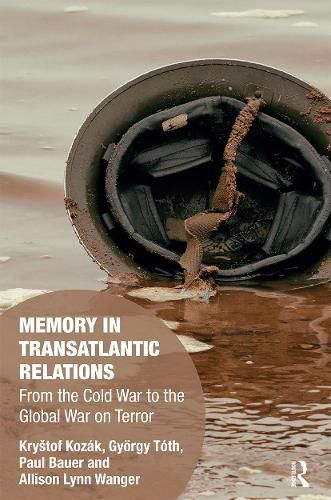Readings Newsletter
Become a Readings Member to make your shopping experience even easier.
Sign in or sign up for free!
You’re not far away from qualifying for FREE standard shipping within Australia
You’ve qualified for FREE standard shipping within Australia
The cart is loading…






This volume focuses on the uses of collective memory in transatlantic relations between the United States, and Western and Central European nations in the period from the Cold War to the present day. Sitting at the intersection of international relations, history, memory studies and various area studies, Memory in Transatlantic Relations examines the role of memory in an international context, including the ways in which policy and decision makers utilize memory; the relationship between trauma, memory and international politics; the multiplicity of actors who shape memory; and the role of memory in the conflicts in post-Cold War Europe.
Thematically organized and presenting studies centered on the U.S., Hungary, France, the Czech Republic and Slovakia, the authors explore the built environment (memorials) and performances of memory (commemorations), shedding light on the ways in which memories are mobilized to frame relations between the U.S. and nations in Western and Central Europe. As such, it will appeal to scholars across the social sciences and historians with interests in memory studies, foreign policy and international relations.
$9.00 standard shipping within Australia
FREE standard shipping within Australia for orders over $100.00
Express & International shipping calculated at checkout
This volume focuses on the uses of collective memory in transatlantic relations between the United States, and Western and Central European nations in the period from the Cold War to the present day. Sitting at the intersection of international relations, history, memory studies and various area studies, Memory in Transatlantic Relations examines the role of memory in an international context, including the ways in which policy and decision makers utilize memory; the relationship between trauma, memory and international politics; the multiplicity of actors who shape memory; and the role of memory in the conflicts in post-Cold War Europe.
Thematically organized and presenting studies centered on the U.S., Hungary, France, the Czech Republic and Slovakia, the authors explore the built environment (memorials) and performances of memory (commemorations), shedding light on the ways in which memories are mobilized to frame relations between the U.S. and nations in Western and Central Europe. As such, it will appeal to scholars across the social sciences and historians with interests in memory studies, foreign policy and international relations.